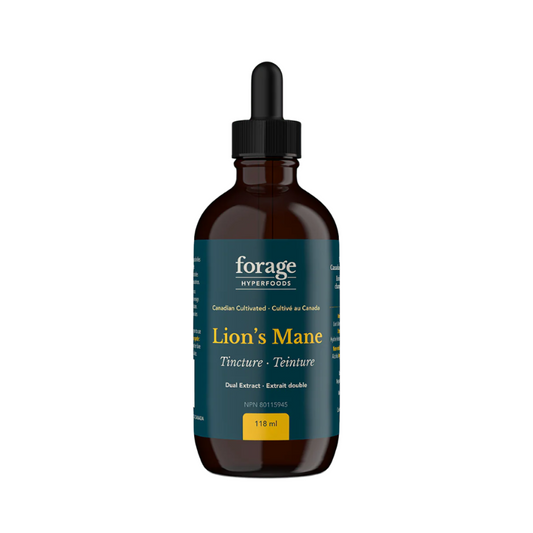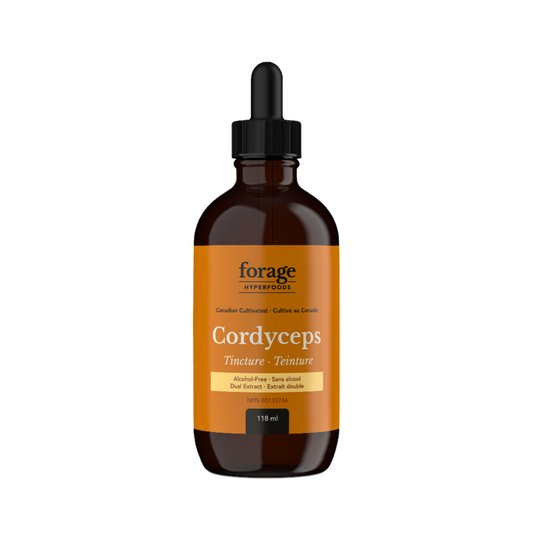
Exploring Alternative Medicine
Share
Alternative medicine, also known as complementary medicine, encompasses a range of healthcare practices and therapies that fall outside of conventional Western medicine. With a growing interest in holistic wellbeing, many individuals are seeking alternative medicine practices to complement or replace traditional medical treatments. The purpose of this article is to explore various alternative medicine modalities and their potential benefits. From traditional healing systems like Traditional Chinese Medicine and Ayurveda to modern approaches such as naturopathy and mind-body medicine, there is a diverse range of practices to consider. By delving into alternative medicine, we can gain a deeper understanding of the interconnectedness between our physical, mental, and emotional aspects, and discover complementary approaches that enhance overall health and address specific health concerns.
Traditional Chinese Medicine (TCM)
Traditional Chinese Medicine (TCM) is a holistic healing system practiced for thousands of years. It is based on the principles of Qi (energy), Yin and Yang (opposing forces), and the Five Elements (wood, fire, earth, metal and water). TCM views the body as a harmonious balance of these elements, and disease is believed to arise from an imbalance or blockage of Qi. TCM treatments aim to restore harmony and balance within the body by addressing the root causes of illness rather than just the symptoms.
Acupuncture is a key practice in TCM that involves the insertion of thin needles into specific points along the body's meridian channels. These channels are believed to carry Qi, and stimulating or redirecting its flow can restore balance and promote healing. Acupuncture has been used to alleviate various conditions such as chronic pain, migraines, digestive disorders, stress, and fertility issues. It is believed to stimulate the release of endorphins, promote circulation, and enhance the body's natural healing response.
Herbal medicine is another essential component of TCM. Chinese herbal remedies consist of combinations of plant parts, minerals, and animal products. Each herb has specific healing properties and is prescribed based on an individual's unique condition. Chinese herbal medicine aims to restore balance and harmony by nourishing deficiencies, clearing excesses, and supporting the body's innate healing capabilities. It is commonly used to address a wide range of health conditions, including respiratory disorders, digestive issues, hormonal imbalances, and immune system support.
In addition to acupuncture and herbal medicine, TCM encompasses other practices such as moxibustion, cupping, and tai chi. Moxibustion involves the burning of mugwort herb near specific acupuncture points to stimulate warmth and promote healing. Cupping therapy involves placing heated glass cups on the skin to create suction, which helps relieve muscle tension, improve circulation, and promote detoxification. Tai chi is a gentle form of exercise that combines flowing movements, deep breathing, and meditation to enhance Qi flow, improve balance, and promote overall well-being.
Functional mushrooms have been integral to TCM for centuries. Reishi is often referred to as the "mushroom of immortality" and is highly revered for its immune-enhancing properties, stress reduction, and liver support. It is used in TCM to promote longevity, support the cardiovascular system, and improve overall vitality. Turkey Tail is another functional mushroom commonly used in TCM. It is valued for its immune-modulating effects, digestive support, and antioxidant properties. Turkey Tail is often incorporated into herbal formulations to enhance immune function and promote overall well-being. These functional mushrooms are examples of how TCM recognizes the therapeutic potential of certain fungi and incorporates them into its holistic approach to health and healing.
Ayurveda
Ayurvedic medicine is a traditional healing system that originated in India over 5,000 years ago. It is a comprehensive approach to wellness that seeks to balance the mind, body, and spirit. Ayurveda, which means "science of life," is based on the belief that health is a state of harmony between an individual and their environment. It encompasses a wide range of practices, including herbal medicine, yoga, meditation, dietary guidelines, and lifestyle recommendations. Ayurvedic principles emphasize the interconnectedness of all aspects of life and promote the idea that prevention is key to maintaining optimal health.
In Ayurveda, the concept of doshas plays a significant role. Doshas are energetic forces that determine an individual's unique constitution and govern their physical and mental characteristics. There are three primary doshas: Vata, Pitta, and Kapha. Vata represents the elements of air and space and is responsible for movement and creativity. Pitta is associated with fire and water and governs metabolism, digestion, and transformation. Kapha embodies earth and water elements and is responsible for stability, strength, and nourishment. Each person has a unique combination of these doshas, and their balance or imbalance determines their state of health.
Ayurvedic treatments aim to restore balance to the doshas and promote overall well-being. They encompass a variety of therapies tailored to an individual's specific needs. Ayurvedic practitioners may recommend oil massages, known as Abhyanga, to nourish the body, enhance circulation, and promote relaxation. Herbal remedies are also integral to Ayurvedic healing and may include various plants, roots, and minerals tailored to an individual's constitution and imbalances. Additionally, Ayurveda emphasizes the importance of dietary choices, offering guidelines for optimal nutrition based on one's dosha. These dietary recommendations aim to support digestion, promote vitality, and maintain doshic balance.
The benefits of Ayurveda extend beyond the physical realm, offering holistic well-being. Ayurvedic practices focus on preventing disease by addressing the root causes of imbalance, rather than solely treating symptoms. By harmonizing the doshas and optimizing bodily functions, Ayurveda promotes vitality, mental clarity, emotional balance, and spiritual growth. It emphasizes the importance of mindful living, stress reduction, and self-care practices. Ayurveda recognizes that each individual is unique and requires personalized care to achieve optimal health, allowing individuals to take an active role in their well-being.
Functional mushrooms have also found their place in Ayurveda as powerful natural remedies. Reishi, known as "The Mushroom of Spiritual Potency," is revered for its calming and grounding effects, making it beneficial for reducing stress and promoting mental clarity. It is believed to enhance spiritual growth and balance the nervous system. Chaga, another functional mushroom, is highly regarded for its antioxidant and immune-modulating properties. In Ayurveda, these mushrooms are used to support overall vitality and strengthen the body's natural defences. Incorporating functional mushrooms into Ayurvedic practices provides an additional layer of support for holistic well-being, aligning with the system's philosophy of promoting balance and harmony in all aspects of life.
Naturopathy
Naturopathic medicine is a holistic approach to healthcare that emphasizes the body's innate ability to heal itself. It combines traditional healing practices with modern scientific knowledge to provide comprehensive and personalized care. Naturopathic physicians are trained to treat the whole person, taking into account physical, mental, emotional, and environmental factors. The principles of naturopathy include identifying and treating the root cause of illness, supporting the body's natural healing processes, and focusing on prevention to achieve optimal health.
At the core of naturopathic medicine is the belief in the body's inherent ability to heal. Naturopathic practitioners prioritize natural healing methods and empower individuals to take an active role in their well-being. Prevention is emphasized through education and lifestyle modifications to promote long-term health. Self-care practices, such as stress management, adequate sleep, and regular exercise, are encouraged as essential components of maintaining wellness. By addressing the underlying causes of imbalance and promoting self-care, naturopathic medicine aims to prevent illness and support overall vitality.
Naturopathic treatments encompass a variety of modalities tailored to the individual's specific needs. Nutrition is a foundational aspect of naturopathy, as it recognizes the impact of food on health. Naturopathic physicians provide dietary guidance and may recommend supplements to optimize nutrition. Herbal medicine is another key component, utilizing the healing properties of plants to support the body's natural functions. Homeopathy, a practice that involves the use of highly diluted substances to stimulate healing, is also utilized by naturopathic practitioners. Lifestyle modifications, such as stress reduction techniques and exercise programs, are incorporated to promote overall well-being.
Naturopathic medicine promotes overall health by addressing the individual as a whole and tailoring treatments to their specific needs. Naturopathic physicians take the time to understand patients' health concerns and develop personalized treatment plans. By identifying and addressing the root causes of illness, naturopathy aims to support the body's natural healing mechanisms and restore balance. This approach can be beneficial for a wide range of health concerns, including chronic conditions, digestive disorders, hormonal imbalances, allergies, and fatigue. By combining evidence-based natural therapies with conventional medicine when necessary, naturopathic medicine provides comprehensive care that supports the individual's well-being.
Functional mushrooms have gained recognition within naturopathic medicine for their potential health benefits. Reishi, known for its adaptogenic and immune-enhancing properties, is often used to support overall wellness and strengthen the body's defences. Turkey tail, with its immune-modulating effects, is another functional mushroom utilized within naturopathy to support immune system function. These mushrooms can be incorporated into naturopathic treatments to complement other therapies and enhance overall health. Their natural compounds and bioactive substances offer potential benefits for various health concerns, aligning with the principles of naturopathic medicine in promoting natural healing and well-being.
Mind-Body Medicine
Mind-body medicine recognizes the intricate connection between the mind and body and how it impacts overall well-being. It acknowledges that mental and emotional states can influence physical health and vice versa. Mind-body medicine aims to harness this connection to promote healing and achieve optimal health. By utilizing various techniques and practices, individuals can cultivate greater self-awareness, reduce stress, enhance mental clarity, and improve overall quality of life.
Meditation and mindfulness practices are fundamental components of mind-body medicine. Meditation involves focusing the mind and redirecting thoughts to achieve a state of deep relaxation and inner peace. It has been shown to reduce stress, lower blood pressure, and improve mental clarity. Mindfulness, on the other hand, emphasizes being fully present in the moment, observing thoughts and sensations without judgment. These practices cultivate a greater sense of self-awareness and help individuals manage stress, anxiety, and other emotional challenges.
Yoga and Tai Chi are mind-body practices that combine movement, breath control, and meditation. Yoga involves a series of postures and stretches, promoting physical strength, flexibility, and balance while also calming the mind. It has been shown to improve cardiovascular health, reduce anxiety, and enhance overall well-being. Tai Chi is an ancient Chinese martial art that emphasizes slow, flowing movements and deep breathing. It promotes relaxation, improves balance and coordination, and supports mental clarity.
Other mind-body practices include biofeedback, hypnotherapy, and guided imagery. Biofeedback uses electronic devices to measure and provide feedback on physiological functions, such as heart rate and muscle tension. It helps individuals learn to consciously control these functions, leading to improved stress management and overall well-being. Hypnotherapy uses guided relaxation and focused attention to help individuals tap into their subconscious mind and facilitate positive change. Guided imagery involves using mental images and visualizations to promote relaxation, reduce pain, and enhance overall well-being.
Functional mushrooms have a place within mind-body medicine due to their potential to support mental clarity, relaxation, and overall well-being. Certain mushrooms, such as Lion's Mane, have been studied for their cognitive-enhancing properties, supporting memory, focus, and mental function. Other mushrooms, like Reishi, possess adaptogenic properties that help the body cope with stress and promote a sense of calm. By incorporating functional mushrooms into mind-body practices, individuals can further enhance the mind-body connection, promoting relaxation, mental clarity, and overall wellness.
Energy Healing
Energy healing modalities, such as Reiki and acupuncture, focus on the manipulation and balancing of the body's energy systems to promote healing and wellbeing. Reiki, a Japanese technique, involves the gentle laying on of hands to transfer healing energy to the recipient. Acupuncture, originating from Traditional Chinese Medicine, utilizes thin needles inserted into specific points along the body's meridian pathways to restore the flow of energy. These modalities recognize the existence of life force energy, also known as Qi or Prana, and aim to optimize its flow for improved health.
The underlying principle of energy healing is that imbalances or blockages in the body's energy systems can lead to physical, emotional, or spiritual disturbances. Energy healers work to identify and correct these imbalances by directing or transmitting healing energy. This energy is believed to nourish and harmonize the body, supporting its natural healing abilities and restoring balance to the entire system. By addressing the energetic aspect of health, energy healing aims to promote holistic wellbeing.
Energy healing offers a wide range of benefits for individuals seeking relaxation, stress reduction, and overall wellbeing. The gentle and non-invasive nature of these modalities makes them accessible to people of all ages and health conditions. Energy healing sessions can induce deep relaxation, reduce anxiety and stress, and promote a sense of calm and inner peace. By rebalancing the body's energy systems, energy healing can also support the immune system, enhance vitality, and improve the body's capacity for self-healing.
Functional mushrooms can complement energy healing practices by providing additional support to the body's energy systems. Certain mushrooms, like Cordyceps and Chaga, have adaptogenic properties that help the body adapt to stress and promote overall vitality. They can enhance the body's energy levels, strengthen the immune system, and support overall wellbeing. Incorporating functional mushrooms into energy healing sessions or integrating them into one's daily routine can provide an added boost of support for the body's energy systems, amplifying the benefits of energy healing practices.
Conclusion
In conclusion, the exploration of alternative medicine and complementary approaches to wellbeing has revealed a diverse array of practices, each offering unique perspectives on holistic health and individualized care. Traditional Chinese Medicine, Ayurveda, naturopathic medicine, mind-body medicine, and energy healing all emphasize the interconnectedness of the body, mind, and spirit, aiming to restore balance and promote natural healing. It is important to seek guidance from qualified practitioners when exploring these practices to ensure safe and effective implementation and to reap their full benefits.
Additionally, functional mushrooms have emerged as a valuable resource in the realm of alternative medicine, offering unique bioactive compounds and potential health benefits. Incorporating potent mushroom tinctures into our daily routines provides a convenient and effective way to harness the healing properties of mushrooms. Whether it's enhancing immune function, promoting relaxation, or optimizing energy levels, functional mushrooms complement and amplify the effects of various alternative medicine practices. By embracing the possibilities that alternative medicine and functional mushrooms provide, we can embark on a path of holistic wellness, harnessing the power of nature to support our overall wellbeing. Start your journey with functional mushroom tinctures here.



